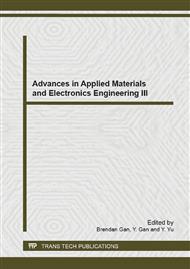p.697
p.702
p.706
p.713
p.717
p.721
p.725
p.731
p.736
The Influential Mechanism Research of Leisure-Skill Sharing Intention of the Elder Adult within Community in Hangzhou: Based on the Social Exchange Theory
Abstract:
Whether the quality of some leisure activity is high depends on the mastery of leisure skill. Sharing-education is more suitable for the elderly rather than teaching-education. The object of this study is the retired elderly of 50-70 in Hangzhou. Based on the social exchange theory, the study is aimed at the influence mechanism of leisure skills sharing intention as well as the attitude within the community. We find that the most significant factor affecting the sharing intention is altruism, then interdependence, then self-efficacy, then trust. While the influences of reciprocity, reputation, and skill-sharing effort on knowledge-sharing behavior intention are insignificant. The result can give guidance for the design of the local virtual community of leisure skill among the elderly.
Info:
Periodical:
Pages:
717-720
DOI:
Citation:
Online since:
April 2014
Authors:
Price:
Сopyright:
© 2014 Trans Tech Publications Ltd. All Rights Reserved
Share:
Citation:


